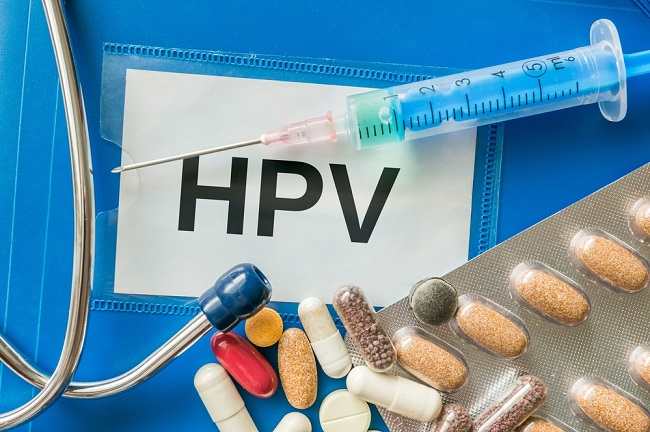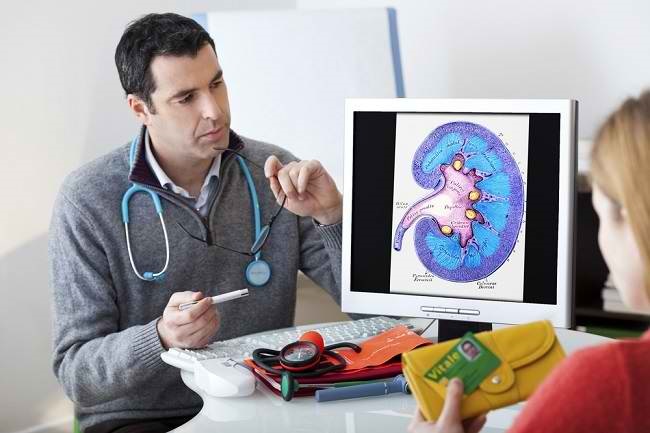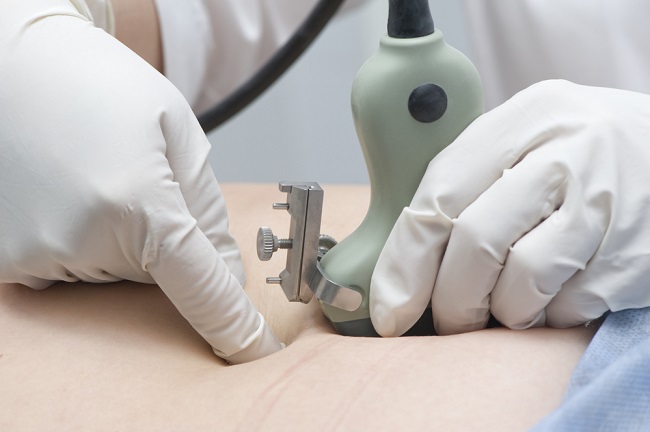Pheart check not only recommended for people who already have disease heart. Oeven healthy people needcheck heart regularly. The purpose is to detect by early possibility of heart problems, so that it can be handled as quickly as possible.
The heart is one of the most important organs that functions to pump blood throughout the body. If the heart is disturbed, then all organs of the body can be affected.

Who Needs a Heart Check?
Everyone, even if they are healthy, need to have their heart health checked regularly and as early as possible. Especially if you are at high risk for heart problems, such as:
- Have a history of high cholesterol, high blood pressure, and diabetes.
- Being overweight or obese.
- Over 65 years of age.
- Have an unhealthy diet, such as frequently eating foods high in fat, cholesterol, and salt.
- Rarely exercise.
- Frequently smokes or consumes alcoholic beverages.
In addition to the things above, frequent stress can also increase the risk of developing heart problems. If you have one or more of these risk factors, then you should immediately consult a doctor.
Why Everyone Needs a Heart Check?
According to data compiled by the World Health Organization (WHO) in 2016, there were about 18 million people worldwide who died of cardiovascular disease (heart and blood vessels). About 85% of them are caused by heart attacks and strokes.
Based on data from the Ministry of Health of the Republic of Indonesia, coronary heart disease is one of the leading causes of death in Indonesia. About 13% of deaths are thought to be caused by untreated heart disease.
Therefore, checking heart health as early as possible is very important, so that heart problems can be detected from the start. That way, the treatment can be done immediately.
Kinds of Heart Condition Check
The condition of the heart can basically be assessed by a series of examinations, including a physical examination of the heart, blood pressure checks, and supporting tests. Supportive tests for cardiac examination include:
1. Test train heart
Cardiac examination is generally done by treadmill. Therefore, this examination is also called the test treadmill. The cardiac exercise test aims to determine whether the heart is still able to pump blood efficiently when the body needs more oxygen, for example during exercise or undergoing strenuous physical activity.
This test can also detect whether certain symptoms, such as chest pain, appear when the body undergoes physical activity or exercise. In general, this examination is to assess the ability of the heart.
2. Cholesterol test
Cholesterol test is done by taking a blood sample for further examination in the laboratory. Prior to the examination, the patient is usually asked to fast for 8-12 hours.
If you are over 20 years old and do not suffer from certain diseases, you need to have your cholesterol levels checked at least every five years. However, if you have a history of diabetes, high cholesterol, stroke, heart disease, hypertension, and obesity, do regular cholesterol checks as recommended by your doctor.
3. Electrocardiogram (ECG)
This procedure aims to check the electrical activity of the heart. Abnormalities in the electrical activity of the heart can indicate a heart rhythm disorder or arrhythmia. In addition, an electrocardiogram is also used to detect the possibility of a heart attack.
4. Echocardiography
Echocardiography is an examination to see the condition of the muscles and heart valves, using ultrasound. This procedure is often used to diagnose endocarditis, heart valve disorders, and congenital heart disease, as well as to see if there is a buildup of fluid in the lining of the heart.
5. Angiography and cardiac catheterization
Angiography and cardiac catheterization are often necessary if your doctor suspects a problem with the muscles, valves, or arteries in your heart.
In addition to examination, catheterization is also often used as a treatment procedure, for example to destroy blockages in the heart's blood vessels, widen blocked blood vessels, or repair damaged heart valves.
6. CT scan jheart
CT scan of the heart, also known as coronary calcium scan is a heart examination procedure to detect plaque (atherosclerosis) that may be present in the arteries of the heart.
By knowing how much plaque is in the arteries, doctors can predict what problems will arise and prepare for treatment.
7. MRI of the heart
MRI machine or magnetic reasoning imaging produces detailed images of the heart, so doctors can examine the condition of the heart more thoroughly. An MRI is used if there are suspected problems with the size of the heart, the thickness and movement of the heart muscle, and the blood vessels of the heart.
Maintaining heart health needs to be done from a young age. In addition to regular checkups, you also need to adopt a healthy lifestyle. From now on, be diligent in exercising, increase consumption of fruits and vegetables, and limit foods high in cholesterol, fat, and salt.
If you're used to cooking with oil, try using a heart-friendly oil, such as canola oil.
This oil has very little saturated fat content, but is high in healthy fats (unsaturated fats). In addition, canola oil also contains lots of omega-3 fatty acids which are good for heart and brain health. The content of this good fat is even said to be higher than other types of cooking oil.
To undergo an examination or check-up heart, you need to first consult a cardiologist. In addition to determining the type and schedule of heart examinations, the doctor will also recommend the type of food and exercise that suits your condition.









